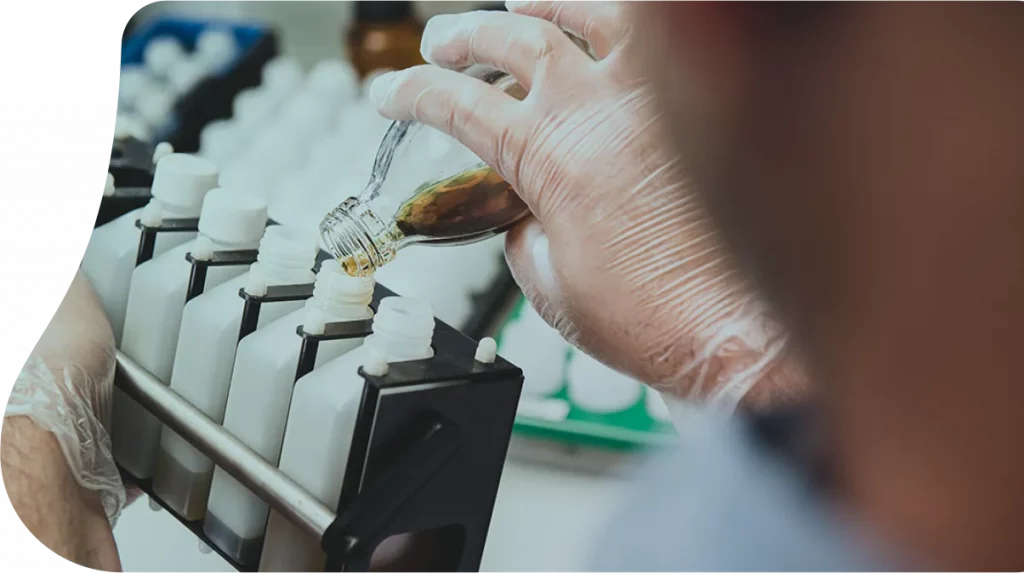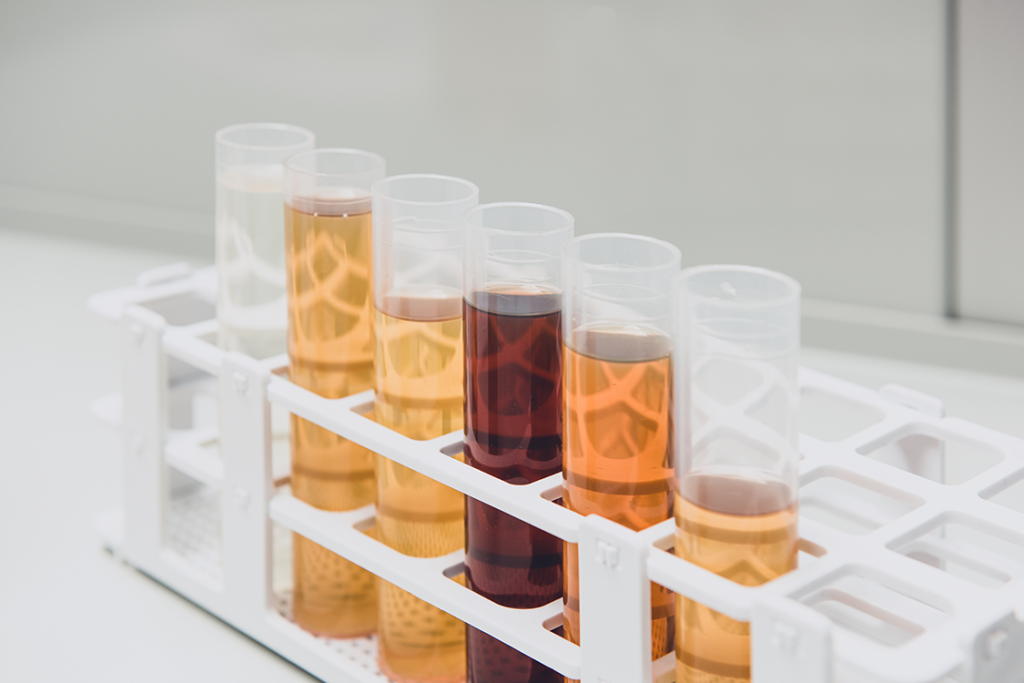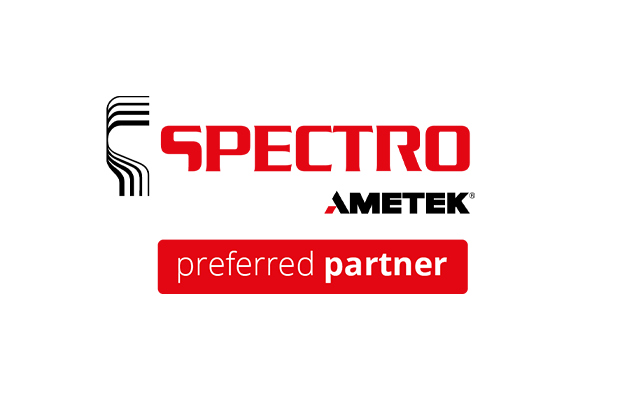Before oil samples are introduced to the ICP analyzer, they undergo an extensive preparation procedure. Weighing, dilution, homogenizing and transferring to the analyzer are examples of preparation steps. Great accuracy and precision is required: the slightest deviation can affect the analysis results. Automating this procedure enables laboratories to prepare their oil samples consistently at high speed.
Automatic oil sample preparation

Before oil samples are introduced to the ICP analyzer, they undergo an extensive preparation procedure. Weighing, dilution, homogenizing and transferring to the analyzer are examples of preparation steps. Great accuracy and precision is required: the slightest deviation can affect the analysis results. Automating this procedure enables laboratories to prepare their oil samples consistently at high speed.
The results of oil analysis are used for a wide variety of purposes
The analysis results of (lubricating) oils, diesel and coolants are used by customers in the petrochemical industry to meet standards and to efficiently schedule maintenance of their vehicles, aircraft, ships and industrial systems. In addition, it provides detailed information that enables them to monitor trends, reduce downtime and risk of damage.
Would you like to find out more?
We are happy to advise you on the solution and modules that match your laboratories’ requirements and workflows.
The sample preparation procedure depends on the type of (lubricating) oil or diesel that needs to be analyzed, the requirements of the customer and the prescribed standards (e.g. ASTM or DIN). Highly viscous samples, like (lubricating) oils must be diluted prior to analysis for example. This is typically performed using an organic solvent. The dilution of oil samples can be performed either on a weight (gravimetric) or volume basis (volumetric).

Typical oil preparation steps
The following sample preparation steps are common when preparing and analyzing oil samples:
- Sampling
- Dilution
- Homogenizing (vortex mixing)
- Transporting to the ICP analyzer
- Cleaning
Labiron has many years of experience in automatic oil sample preparation. Our specialists’ practical understanding of how laboratories in the petrochemical industry function helps us to optimally support their practices. We provide a range of solutions for the preparation of oil samples addressing the particular challenges that they present: dilutions, settling particulate matter and fast response times.
Sampling, dilution and analysis of oil samples is performed with our high-end automation solutions in combination with an ICP analyzer. We offer modular, customer-specific solutions that are adjusted to the preparation steps and procedures performed by your laboratory. By automating the time-consuming tasks of sampling and dilution, laboratories are able to maximize their production while maintaining the highest quality data. As a result, they are able to:
- Increase their speed and sample throughput
- Improve the quality, consistency and reliability of their services
- Reduce costs as a result of high productivity and accuracy
The results of oil analysis are used for a wide variety of purposes
The analysis results of (lubricating) oils, diesel and coolants are used by customers in the petrochemical industry to meet standards and to efficiently schedule maintenance of their vehicles, aircraft, ships and industrial systems. In addition, it provides detailed information that enables them to monitor trends, reduce downtime and risk of damage.
The sample preparation procedure depends on the type of (lubricating) oil or diesel that needs to be analyzed, the requirements of the customer and the prescribed standards (e.g. ASTM or DIN). Highly viscous samples, like (lubricating) oils must be diluted prior to analysis for example. This is typically performed using an organic solvent. The dilution of oil samples can be performed either on a weight (gravimetric) or volume basis (volumetric).

Typical oil preparation steps
The following sample preparation steps are common when preparing and analyzing oil samples:
- Sampling
- Dilution
- Homogenizing (vortex mixing)
- Transporting to the ICP analyzer
- Cleaning
Labiron has many years of experience in automatic oil sample preparation. Our specialists’ practical understanding of how laboratories in the petrochemical industry function helps us to optimally support their practices. We provide a range of solutions for the preparation of oil samples addressing the particular challenges that they present: dilutions, settling particulate matter and fast response times.
Sampling, dilution and analysis of oil samples is performed with our high-end automation solutions in combination with an ICP analyzer. We offer modular, customer-specific solutions that are adjusted to the preparation steps and procedures performed by your laboratory. By automating the time-consuming tasks of sampling and dilution, laboratories are able to maximize their production while maintaining the highest quality data. As a result, they are able to:
- Increase their speed and sample throughput
- Improve the quality, consistency and reliability of their services
- Reduce costs as a result of high productivity and accuracy
Would you like to find out more?
We are happy to advise you on the solution and modules that match your laboratories’ requirements and workflows.
Solutions
High-end laboratory automation solutions designed, developed and customized to meet your laboratories’ requirements.
Our Partner
Preferred partner of SPECTRO
As a preferred partner of SPECTRO Analytical Instruments GmbH, Labiron offers automation solutions designed for seamless integration with ICP analyzers. This powerful integration enables fully automatic sampling, diluting and analysis. As a result, the sample throughput of laboratories is increased and the quality of the prepared samples is highly consistent and reliable.
